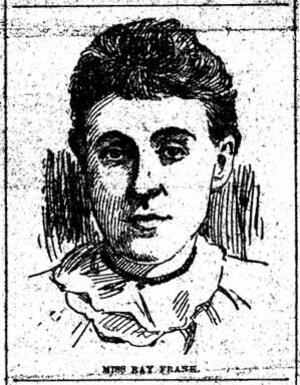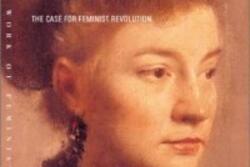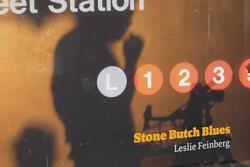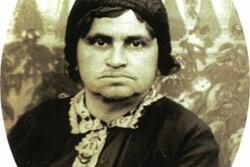"L'dor Vador": Like Ray Frank, Paving the Way for Progress
“I’ve got to start my rough draft for my next Rising Voices Fellowship blog post tonight,” I told my mom and my little sister, Ruby. “It’s about Ray Frank.”
“Who’s that?” My sister asked.
“She was the first Jewish woman to speak in a synagogue,” I said, to which my mom added, “On the pulpit, like sermons and stuff.”
My sister replied, “So basically, she was a rabbi?”
“Well, no, at that time there were no female rabbis,” answered my mom. “She tried to, but—”
“Actually, she didn’t try to,” I said, immediately realizing I had interrupted. Oops. “There was a movement pushing for women rabbis, but she didn’t want to be one.”
“Why not?” asked Ruby.
It’s a good question. Ray Frank began speaking on the pulpit in 1890, and was later deemed “The Girl Rabbi of the Golden West.” But she was, in fact, not a rabbi. Frank never had any stated interest in becoming a rabbi. If she’d continued her education at Hebrew Union College, she may have been capable of becoming the first woman rabbi; but it seems she simply had no desire to do so. I wondered alongside my sister why she didn’t want to.
My mom was right that, at the time, there had never been a female rabbi; the first woman rabbi, Regina Jonas, was ordained in 1935. There was, however, a lively ongoing debate about the matter. Rabbi Emil G. Hirsch advocated for the ordination of women rabbis as a way to replenish the spirit of Judaism and enthuse Jews to reconnect with it, saying: “Woman by nature seems to be capable of richer religious sentiment than is the sterner sex.” Whether this is sexist or not is another (worthwhile) discussion; the point remains that he, among many others, was supportive of the cause. So why didn’t Frank become a rabbi?
Ray Frank made the world see that women could speak on the bima. If she’d become a rabbi, it would have brought Jewish feminism to a whole new level; but it seems like that wasn’t the point for her. Frank showed that women could do more than they ever had before in a Jewish setting, but she also established her own limits based on what she wanted her life to look like. And that did not minimize what she had already done for Jewish feminism.
I think that activists today should take a leaf out of Ray Frank’s book. Many people feel obligated to devote every moment of their lives to advocating for social justice, environmental justice, and other issues they believe are important. One person can help within their circle of influence. And that is glorious. Most people’s circle of influence does not include the entire world; to put pressure on oneself to fix a worldwide problem alone is unrealistic and detrimental on a personal level. Activism is crucial to fixing world issues, yet one person cannot possibly fix it all themselves; instead, activists must make realistic goals while taking into account what they need to do to take care of themselves.
Though Ray Frank had the potential to become a rabbi and transform women's access to the American Jewish world in that way, she chose to do what felt right for her and still paved the way for women rabbis to come. She was a human being with hopes and dreams and goals for her life, and more progress was made by the generations that followed in her footsteps.
Rabbinic ordination was not one of Ray Frank’s goals, but she did what she wanted to (which was a lot!) while paving the way through l’dor vador, for future activists to become rabbis. Frank was a trailblazer already. She didn’t have to prove herself at the expense of her own happiness.
Contemporary activists should do whatever they can to solve problems while keeping in mind that their life goals and mental health also matter, and passing progress from generation to generation (l’dor vador) is valuable and valid. And, for Jewish activists, it’s also a super Jewish value. So next time you find yourself in a kosher pickle about whether or not to take on another activist responsibility, remind yourself that there are other people fighting, too. Take a breath.
This piece was written as part of JWA’s Rising Voices Fellowship.







So much of life and what can be accomplished in a lifetime is about attitude. If you believe you can change the world, you May change the world. If you believe you CAN’T change the world, you WON’T. Setting ‘realistic’ goals is how people never go to college(because it isn’t realistic) and remain in poverty. Reaching for the stars and moving towards them is how social change happens. Eleanor ,I hope you will set your goals far beyond what you believe to be realistic and achieve them! Just ask Greta Thunberg what one person can do.